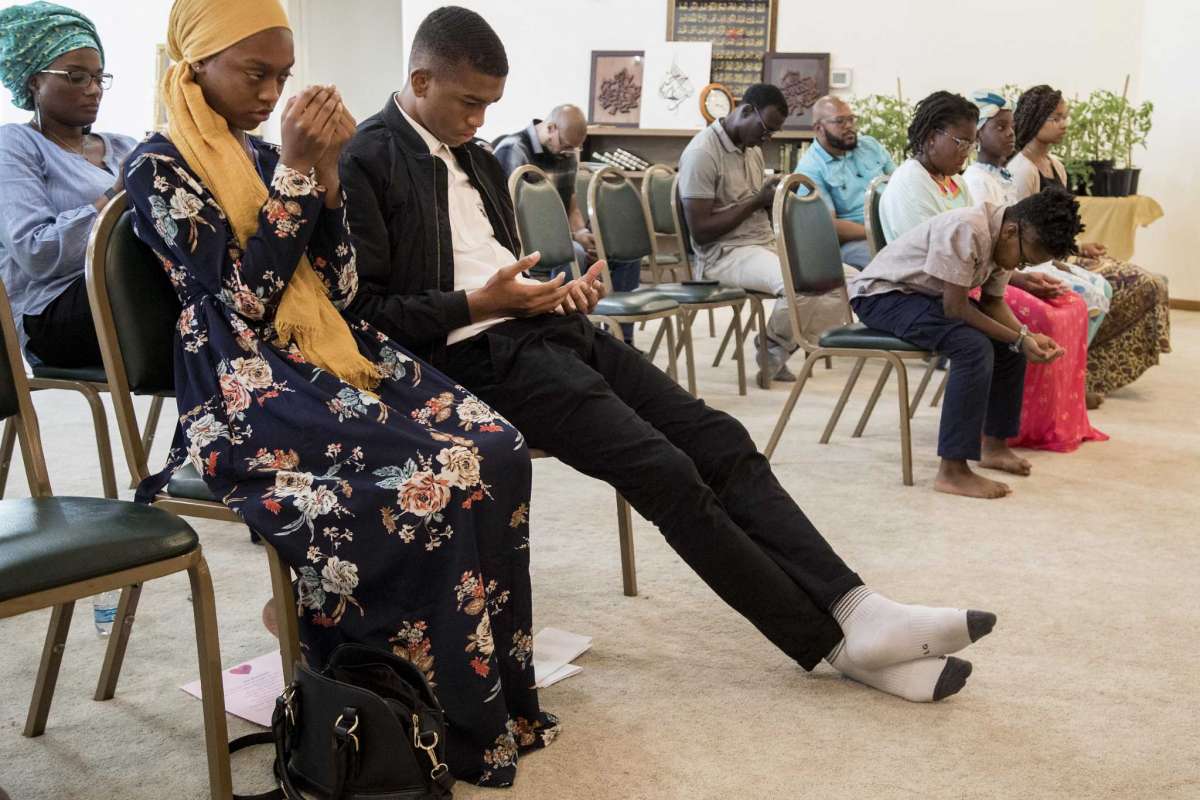“Allah, thank you for the food and drink you have blessed us with,” prayed Baiyina, American Muslim mother of Kamal and Aasiyah Khalil from Missouri City who are 17 and 13 years old respectively, Houston Chronicle reported.
The family had their iftar meal of the second rainy day of Ramadan after 15 hours of fasting at a gathering last Tuesday in Houston Masjid of Al-Islam in southeast Houston.
Ramadan is the holiest month of the Islamic calendar.
Fasting in Ramadan is one of the Five Pillars of Islam and is considered to be obligatory for healthy adult Muslims only.
A 2018 Pew Research Center study found that 80% of the 2.15 million American Muslim adults fast through Ramadan — and the percentage of teens who fast, while not reported, is likely similar.
There are Muslims who are exempted from fasting like women who are menstruating or are pregnant, those who are sick or are traveling, those who are too old, and those who are too young. Once a Muslim hits puberty, the duty of Ramadan falls upon them.
The Ramadan experience may be more tiring for teens than adults, as they for the first time adjust their bodies and will power to abstain from food and drink from sunrise until sunset.
For teens in non-Muslim countries, fasting can also present different challenges to them as they get through the academic, physical, and social aspects of their day. But the benefits of observing Ramadan, such as developing self-discipline and introspection, are considered pervasive.
Baiyina explained that she and her husband Khalil “have been teaching their kids about Ramadan since they were young. They taught them about the Five Pillars of Islam and the importance of Ramadan, and have them practice fasting for a day here and there before they were obliged to fast the entire month.”
“We tried to encourage them because I feel like fasting is something that’s really a habit, and we wanted it to be something that wasn’t new to them while it was still an option.”
“Did anyone bring mouthwash? Baiyina joked with her kids Kamal and Aasiyah as dehydration can cause a musk-like smell on one’s breath, and Muslims don’t chew gum while fasting because they would end up swallowing the sugars and flavorings.

Aaliyah Khalil, 13, left, and her brother, Kamal, 17, perform a day supplication prayer during a service at Houston Masjid of Al-Islam on Sunday, May 5, 2019, in Houston. The Khalil children have been fasting during Ramadan for several years.Photo: Brett Coomer, Houston Chronicle / Staff photographer
Benefits of This Worshiping
The American Islamic scholar Joe Bradford explained: “Ramadan is a way to train their souls to recognize their indebtedness to their creator, and gain a higher consciousness of God and their dependency as created beings.”
According to the teachings of the Islamic Shari`ah, other objectives of Ramadan fasting include learning empathy to those less fortunate and recognizing one’s own will power.
It further brings about a myriad of emotional and spiritual benefits, such as a sense of community and belonging, and feeling closer to one’s faith and God.
Not only that, but scientifically as well, fasting is now considered to render physical benefits, which are becoming more well-known in the meantime as intermittent fasting gains popularity: it resets the body and digestive system, and trains people to control cravings and indulgences.
Shireen Hakim, a nutritionist based in Los Angeles, said that “students who are fasting may have energy levels too low to focus in class, perform well on tests and participate in physical education classes or after-school sports.”
“For school-required activities like P.E., the parents or student should explain the situation ahead of time to the administration so the student can be dismissed. If they’re up to it they could do a lighter activity, such as walk instead of run, or do half the amount,” she said.
As for competitive sports, Hakim says it’s up to each Muslim athlete to determine their ability — but she recommends less strenuous practices and sitting out on games.